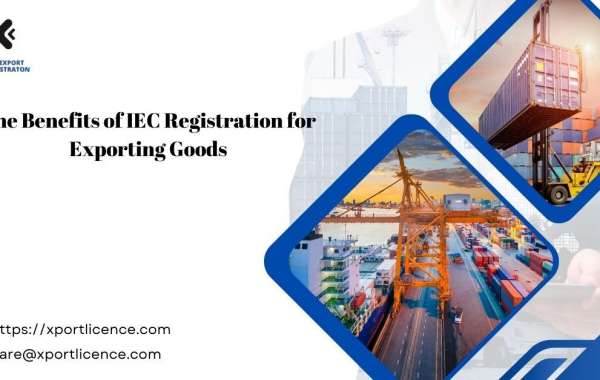In the global marketplace, having the right certifications and registrations is crucial for businesses aiming to expand their reach beyond domestic borders. One such important certification is the Import Export Code (IEC) registration. Issued by the Directorate General of Foreign Trade (DGFT) in India, IEC registration is a mandatory requirement for all businesses involved in international trade. This registration is not just a regulatory formality but a gateway to numerous benefits that can significantly enhance a business's export capabilities. In this article, we will explore the various advantages of IEC registration for exporting goods.
Legal Requirement for Exporting
The IEC registration is a legal necessity for any business wishing to export goods from India. According to Indian trade laws, no entity can undertake export activities without this registration. It acts as a unique identification number for the exporter and is crucial for compliance with the regulations governing international trade. By securing an IEC registration, businesses ensure that they are operating within the legal framework, avoiding potential legal issues and penalties associated with non-compliance.
Facilitation of Smooth Customs Clearance
One of the primary benefits of IEC registration is its role in facilitating smooth customs clearance. Customs authorities require the IEC code for processing export shipments. Without it, goods cannot be cleared for export, leading to delays and potential additional costs. The IEC registration streamlines the process by providing a unique identification number that helps in the efficient processing of export documentation and clearance procedures. This reduces the likelihood of disruptions in the supply chain and helps maintain a steady flow of goods to international markets.
Access to Export Incentives and Schemes
The Indian government offers various incentives and schemes to promote exports, such as the Merchandise Exports from India Scheme (MEIS) and the Services Exports from India Scheme (SEIS). These schemes provide financial benefits, including duty credits and subsidies, to encourage and support export activities. However, to be eligible for these benefits, businesses must possess a valid IEC registration. By having an IEC code, businesses can take advantage of these schemes, reducing their export costs and enhancing their competitiveness in the global market.
Enhanced Credibility and Trust
Having an IEC registration enhances a business's credibility in the international market. It signifies that the business is authorized to export goods and complies with the necessary regulations and standards. For international buyers and partners, an IEC registration assures the business's legitimacy and reliability. This increased trust can lead to stronger business relationships, more significant opportunities, and a better reputation in global trade.
Simplified Trade Documentation
Exporting goods involves a considerable amount of documentation, including shipping bills, invoices, and certificates of origin. The IEC registration simplifies the documentation process by serving as a key identifier in all export-related paperwork. It helps in the accurate and efficient preparation of export documents, reducing errors and inconsistencies. This streamlined documentation process not only saves time but also minimizes the risk of delays and rejections, ensuring that goods reach their destination promptly.
Facilitation of Foreign Currency Transactions
IEC registration is essential for conducting foreign currency transactions related to exports. Businesses with an IEC code can open and operate foreign currency accounts, receive payments in foreign currencies, and engage in international financial transactions smoothly. This capability is crucial for businesses involved in exporting goods, as it enables them to handle payments from international buyers efficiently and manage foreign exchange risks effectively.
Access to Trade Data and Market Insights
With IEC registration, businesses gain access to valuable trade data and market insights. The DGFT and other trade bodies often provide information on market trends, trade policies, and export opportunities. This access helps businesses make informed decisions about which markets to target, which products to export, and how to navigate regulatory changes. By leveraging this information, businesses can develop strategic export plans and enhance their market presence.
Support for Export Financing
Export financing is critical for businesses to manage the financial aspects of international trade, such as pre-shipment and post-shipment finance. IEC registration facilitates access to various export financing options, including loans and credit facilities offered by banks and financial institutions. By having a valid IEC code, businesses can obtain the necessary financial support to fund their export operations, manage cash flow, and sustain growth.
Note: Click here if you wish to update your IEC - Update IEC Code Online
Conclusion
In summary, IEC registration offers a range of benefits that are crucial for businesses engaged in exporting goods. From ensuring legal compliance and facilitating smooth customs clearance to accessing export incentives and enhancing credibility, the IEC registration plays a pivotal role in supporting international trade activities. By simplifying trade documentation, enabling foreign currency transactions, and providing access to valuable market insights, the IEC registration empowers businesses to navigate the complexities of global trade with confidence. For any business looking to expand its reach beyond domestic borders, securing IEC registration is a fundamental step toward achieving success in the international marketplace.




